The seventh round of talks to revive the JCPOA nuclear deal already appear to have foundered. Renewed talks were held last week after five months in the long grass following Ebrahim Raisi assuming the presidency of Iran, and led on Iran’s side by Ali Bagheri-Kani, a JCPOA sceptic and relative of Supreme Leader Ali Khamenei.
The rescue of the JCPOA from the ongoing coma is subject to three conditions on the part of Iran. One is an (impossible to achiee) guarantee that the next US administration will remain in the agreement, the second is the lifting of "all sanctions" imposed by the Trump administration, and the third is "verification" that the sanctions have indeed been lifted. Unless Tehran modifies its position, European sources have said, talks are once again likely to fail this week.
***
None of the parties to the original JCPOA of July 2015 need it to be revived as much as the Islamic Republic of Iran. The country is facing record-breaking levels of inflation and a collapse in government revenues. Not a day goes by that one group of citizens or another protests over life-threatening subsidence crises in the country.
Despite this, after five days of fresh negotiations, representatives of the Islamic Republic submitted two written proposals to the P5+1 countries which European leaders have called “disappointing”. A senior US official told reporters Tehran came “with proposals that walked back anything – any of the compromises Iran had floated here in the six rounds of talks – and pocket[ed] all the compromises that others, the US in particular, had made, and then asked for more.”
A German foreign ministry spokeswoman confirmed the same on Monday. “We reviewed the proposals carefully and thoroughly,” she said, “and concluded that Iran violated almost all compromises found previously in months of hard negotiations.” This new list of demands, she added, were “not a basis for a successful end to talks.”
Ali Bagheri Kani’s Team: The Wrong Men for the Job
Based on what has been leaked from last week’s talks, Iranian officials appear to have abandoned the draft agreements made in the previous six rounds of talks and have only made proposals for the lifting of US sanctions. The Islamic Republic also did not present a plan for Iran's return to its nuclear commitments. Before the latest meetings began in Vienna, Ali Bagheri Kani had said that in his view, “We do not have nuclear talks” – rather, what was on the table was "negotiations to lift the unfair, oppressive sanctions."
The new negotiators are the remnants of the Islamic Republic's nuclear negotiating team headed by Saeed Jalili from 2007 to 2013. During that period, the behavior of the Mahmoud Ahmadinejad administration took Iran’s nuclear case from the International Atomic Energy Agency (IAEA) to the UN Security Council, and finally to the first sanctions being imposed. The failings of Jalili’s team were part of the reason Tehran had to hold secret negotiations with the US in Oman in March 2013.
The current team under Bagheri Kani consists of deputy foreign minister Mehdi Safari, who held the same post under Ahmadinejad, Hamid Reza Asgari, who was a member of the Supreme National Security Council and nuclear negotiator during Jalili’s time, and Mehdi Mohammadi, also an Ahmadinejad-era nuclear negotiator and JCPOA sceptic for the past six years. Other Ahmadinejad-era government officials are playing lesser roles within the team.
According to The Sealed Secret, ex-Foreign Minister Mohammad Javad Zarif’s newly-published memoir of the nuclear talks, no minutes were kept on the Iranian side from meetings held during Saeed Jalili’s tenure. When he took on the brief, Zarif wrote, he had no history of the negotiations prior to 2013. But what is known is that Ali Bagheri Kani was Jalili's deputy at the time when Iran handed over information to the IAEA about its ballistic missile program, leading to the opening of a probe into “possible military dimensions” (PMDs) of Iran’s nuclear activity.
Those who were secretly sent by Ayatollah Khamenei, as a parallel group, to negotiate with the United States in the early 2011 have now returned to the JCPOA talks after eight years of relentless criticism, to save an agreement that they had long criticized to the point of hatred. Even by the standards of the Islamic Republic, they are also among the least capable of salvaging a deal.
Why are Khamenei’s New Terms Impossible?
Perhaps no other buzzword in the Islamic Republic’s 20-year nuclear crisis has been as important as “guarantee”. For world powers, this means reassurance that Iran’s nuclear activity is not directed toward creation of a nuclear weapon. For the Islamic Republic, though, “guarantees” mean creating the conditions for the clerics to remain in power in Iran, while continuing uranium enrichment.
The current Iranian team, at the request of Ayatollah Ali Khamenei, has asked for a “guarantee” from the Biden administration that neither his, nor any other US administration, will deviate from the terms of the deal in future. This is impossible because new US governments aren’t beholden to political decisions taken by older ones, and no US president has jurisdiction over the actions of future presidents. Republican Senator Tom Cotton, an opponent of the JCPOA, has already declared that his party would pull out of any new deal.
On the other side of the coin, there is no obligation on the Iranian government to abide by the terms of the deal either. The JCPOA was never enshrined in Iranian law; on the contrary, as Hassan Rouhani lamented at the end of his tenure, an Act of Parliament last December compelled Tehran to violate the terms of the deal by enriching uranium up to 20 percent and suspending the Additional Protocol, an agreement with the IAEA on the inspection of nuclear sites.
Even if this law were repealed in the Iranian parliament, given the serious opposition to reviving the JCPOA in the US Congress, the chances of a possible agreement being passed by lawmakers on both sides are slim. And even then, by means of an executive order, any current or future US president could nullify it.
The “guarantee” Ayatollah Khamenei has demanded does not exist. If the Islamic Republic wants “guaranteed” adherence to the deal it needs to act in such a way that there would be no reason for sanctions to be reimposed. Part of this involves a cessation of threats made to the US and allies, and the re-establishment of economic ties: two things Khamenei would never allow.
Back in 2015, just when the JCPOA was widely believed to be a prelude to the future of normalizing relations between the two countries, Ayatollah Khamenei delivered a scathing speech in Tehran warning that the US wanted to "infiltrate" Iran through the deal that had been struck. This became the basis for the security services, especially the Islamic Revolutionary Guard Corps, to escalate tensions with the US by arresting dual nationals like Siamak Namazi and carrying out of provocative missile tests – and, of course, ramping up the funding of militant groups in the region. Eventually, President Trump withdrew from the JCPOA based on the Islamic Republic’s “behavior”.
There is also the fact that many of the US and EU sanctions in place relate to documented human rights abuses and international crimes by individuals and entities, not just Iran’s nuclear program. Any “guarantee” is therefore contingent on the Islamic Republic transforming itself internally from a revolutionary movement into a rational, normal state. This has been the fundamental blockade that meant all attempts at accord on this important issue – during the time of Saeed Jalili, Hassan Rouhani and Mohammad Javad Zarif, and now under the tenure of Ebrahim Raisi – have failed.
Related coverage:
Iran's Ex-Nuclear Chief Confirms Weapons Cover-Up
Khamenei’s Self-Fulfilling Prophecies are Destroying Iran
Zarif's Farewell Letter to Parliament Reveals Obstacles Blocking a JCPOA Return
Nuclear Acceleration and Rocket Attacks: The Uncertain Future of the JCPOA
Why did Hassan Rouhani Blame Sanctions on 'Disrespect' for the Iranian Constitution?
Nuclear Chief Fears Iran Will be the Next North Korea
The IAEA Nuclear Impasse: Five Questions Tehran Needs to Answer
IAEA Accuses Iran of Stonewalling its Investigations
What are the Consequences of Iran’s Higher Rate of Uranium Enrichment?




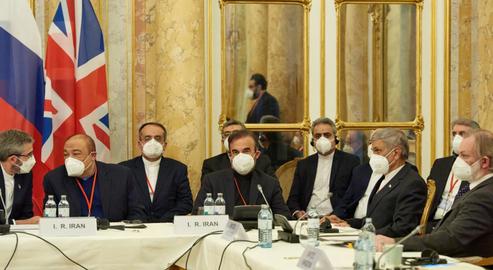
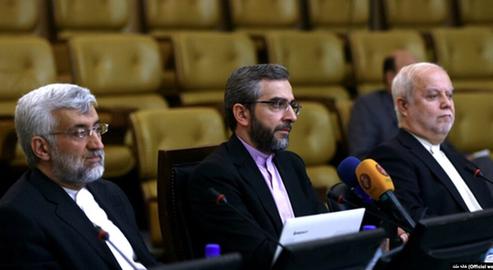
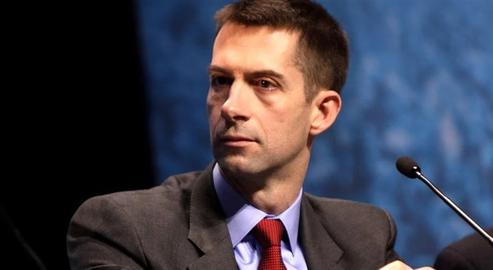

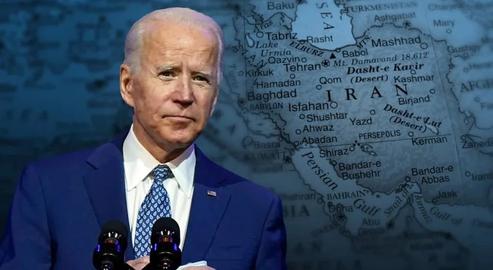



















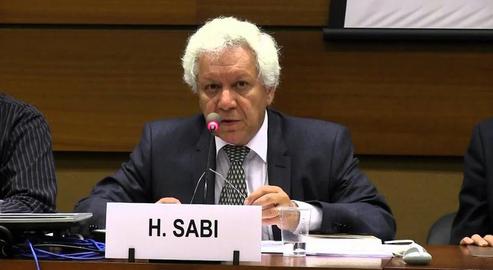
comments